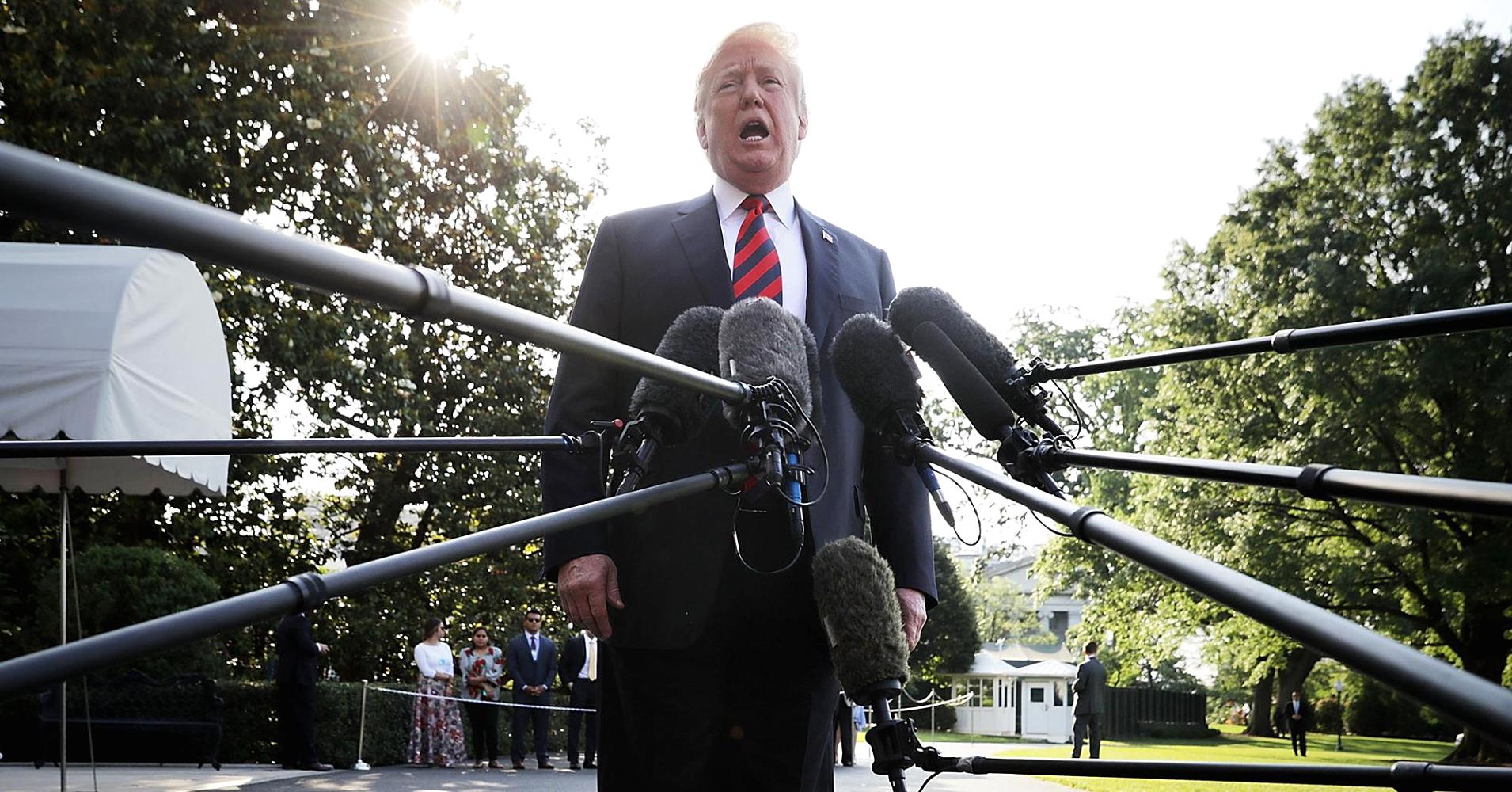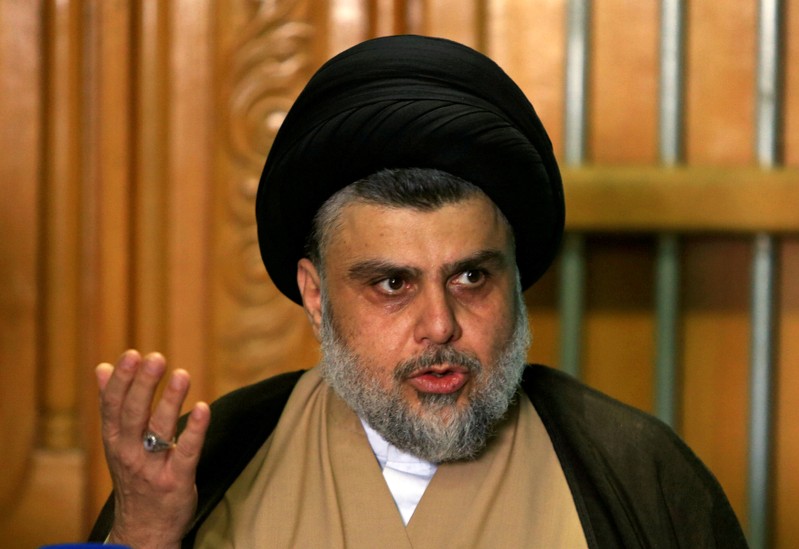
Vladimir Putin tried to help Donald Trump win the presidency. As president, Trump is helping Putin achieve a top strategic goal.
And the question is: Why?
That mystery deepened Friday when Trump, as he openly attacked U.S. allies while heading for meetings with them, called for Russia to be readmitted to the G-7 club of advanced industrial democracies. The U.S. and its allies ejected Russia after its 2014 seizure of Crimea.
With that concession, Trump capped a whirl of activity advancing Russia’s objective of splintering the alliances undergirding the Western world’s security and prosperity for the past 70 years. French President Emmanuel Macron, incensed by the trade conflicts Trump instigated, declared that G-7 partners gathered in Canada this weekend might cut out the U.S. for purposes of the summit communique.
This followed the president’s earlier reluctance to embrace North Atlantic Treaty Organization commitments safeguarding Europe against Russia, his delay in implementing new congressional sanctions against Russia and his praise of Putin himself. Those actions, according to U.S. intelligence and law enforcement officials, followed criminal interference by Russian operatives to help Trump defeat Hillary Clinton in the 2016 election.
The starkness of Trump’s words — he stated no conditions for returning Russia to international favor on the same morning he impugned Canada’s honesty — unsettled observers across the political spectrum.
Republican Sen. Jeff Flake of Arizona flatly rejected Trump’s idea, which Republican Gov. John Kasich of Ohio said “does not protect or defend the national security interests of the United States or our allies.” Others cast Trump’s unusual battles with historic friends while reaching out to an existential historic enemy as part of a corrupt bargain that put him in the White House in the first place.
“This transatlantic rift is a gift to Russia that amply repays Vladimir Putin’s investment in helping the Trump campaign,” wrote the conservative foreign policy expert Max Boot.
Former aides to President Barack Obama spoke out just as bluntly.
“If Putin were giving Trump instructions, it’s hard to imagine how he could do more damage to America’s alliance and global leadership than Trump has already done,” ex-national security advisor Susan Rice said on Twitter.
“He doesn’t even try not to seem like the Manchurian candidate,” tweeted Samantha Power, Obama’s former ambassador to the United Nations.
“Trump picks fights with our allies and bends over backward to appease Putin,” noted former U.S. Ambassador to Russia Michael McFaul. “Why?”
Only Trump knows the answer. He insists he’s been “much tougher on Russia” than Obama was and that his campaign did not conspire with Russia to tilt the 2016 outcome.
Nor has Justice Department special counsel Robert Mueller alleged such a conspiracy. But Mueller has indicted the Trump campaign’s former chief executive Paul Manafort, Manafort’s top deputy, a foreign policy advisor, three Kremlin-linked companies and 13 Russians for other crimes.
On Friday, he filed obstruction of justice charges against someone new: Konstantin Kilimnik, a Russian associate of Manafort’s with ties to Putin’s intelligence service.
Richard Haass, a foreign policy advisor to both presidents Bush, stops short of connecting Trump’s policies with Putin’s election help. He notes “parallel impulses” shared by both leaders.
Putin decided in recent years to boost Russia’s power by disrupting Western democratic rivals, rather than becoming more like them. Trump decided to disrupt a post-World War II international order that he insists shortchanges American economic and security interests.
Yet Haass, who now runs the New York-based Council on Foreign Relations, still considers Trump’s choices mystifying. That’s largely because, like economists and defense experts on both parties, he considers the benefits to America of the trade and security alliances postwar leaders built so obvious.
Whatever motivates Trump’s approach, “We will pay a price across the board,” Haass says. “I can’t account for it. I can’t explain it. I don’t believe he’s explained it.”

